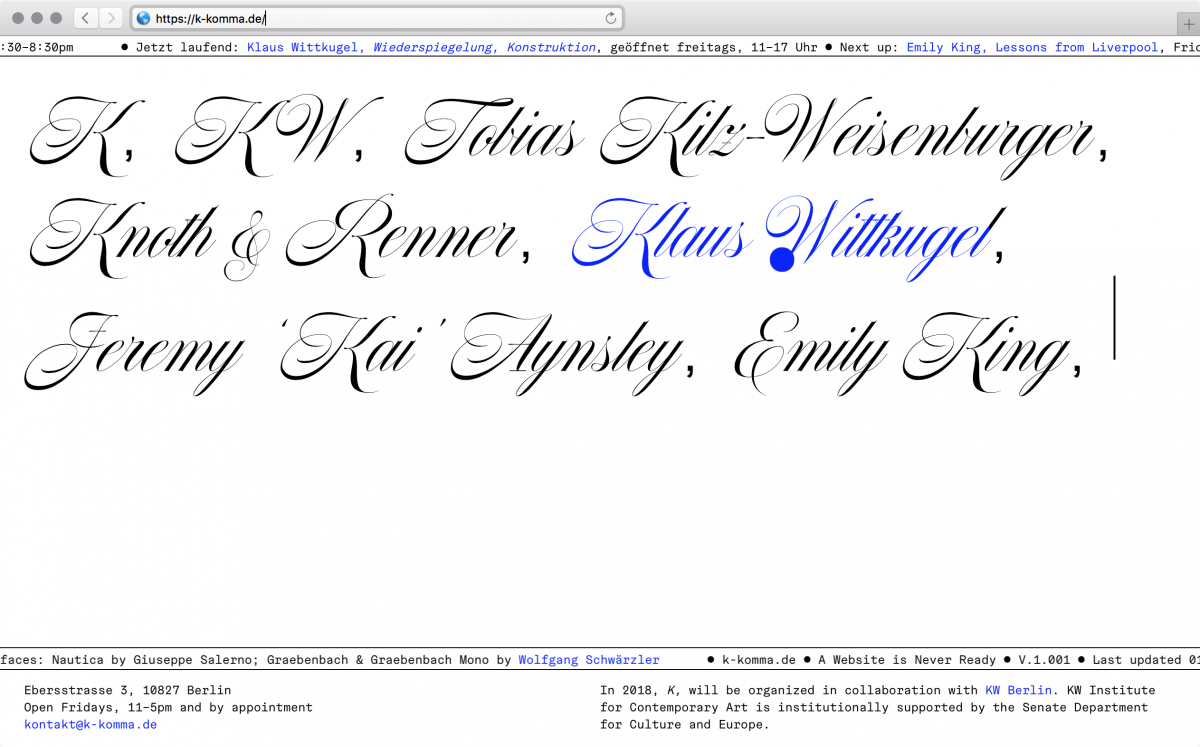A website is never ready. It is subject to constant change, it is a resonant body of the technical status quo and a living projection of the authors. Endless scrolling, depending on the individual daily form.
Unlike other areas of visual culture where manifestation of form is sought and visual decisions are clear, there is only temporary authorship online – until the next update.
The desire for obvious decisions meets systemic factors and comes back as an unmanageable potpourri of possibilities. Analogous to the physical model of the double pendulum, the development of a website is a chaotic process – a steady balancing of seemingly unlimited possibilities.
Collaborating since 2011 and located between Berlin and Leipzig, Knoth & Renner focus on projects for art, architecture and science institutions. Based on a deep appreciation for digital culture and technology, the studio’s interdisciplinary portfolio includes websites, publications, exhibition graphics, visual identities and apps.
Christoph Knoth — is professor for Digitale Grafik at the HFBK Hamburg in the department of Graphic Art / Photography / Typography since 2017. In 2012 he was a design researcher at the Jan van Eyck Akademie in Maastricht with his project Computed Type. In the winter semester of 2015/16 Christoph Knoth was guest professor for information design at the Burg Halle. In the following year he was, together with Konrad Renner, a guest researcher at the Bauhaus University in Weimar as a substitute for the professor in typography where they started the project Digital Typography. For the period 2015–2017 he was a fellow at Akademie Schloss Solitude.
Konrad Renner — is professor for Digitale Grafik at the HFBK Hamburg in the department of Graphic Art / Photography / Typography since 2017. He also taught as artistic associate for three years in the MA programme for Editorial Design at the University of Art and Design Burg Giebichenstein in Halle from 2012–2015 and was a visiting lecturer at the Berlin University of Arts (UdK). In 2016 he was, together with Christoph Knoth, a guest researcher as a substitute for the professor in typography at the Bauhaus-University in Weimar where they started the project Digital Typography.
